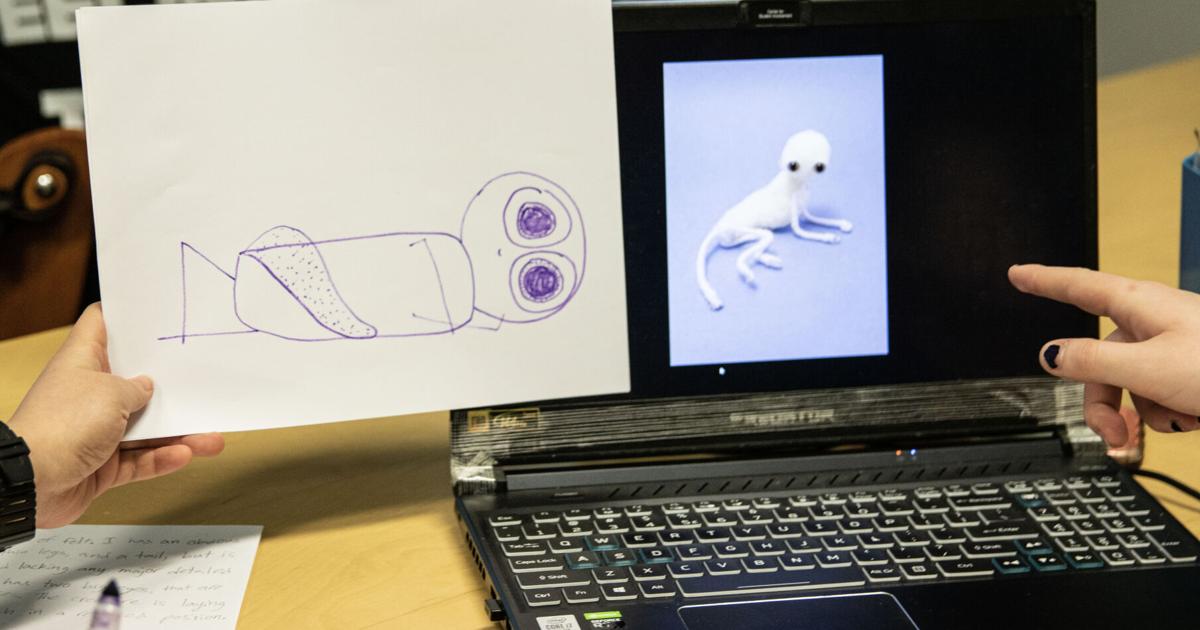“I’m not wearing that,” my daughter said as she cringed at the T-shirt design for her softball team.
“It looks so AI,” she clarified.
I suppose we were in luck the T-shirt wasn’t mandatory, but because it looked AI?
“What does that even mean?” I asked her, examining the photo sent on the team’s communication portal. It was a simple pink shirt with a cartoonlike pair of cleats, a softball and two crisscrossed bats all adorned with a big bow on top. It was cute. She was nuts.
“It just looks … so AI,” she said, doubling down on her stance that she was not interested in purchasing this shirt.
Needless to say, we didn’t fork out the $20-some bucks for the shirt, but it did get me thinking.
AI? Is this what she thinks AI is? And better yet, she was turning her nose up to it? What does that say about how this generation views the emerging technology that society fears could take over the world one day?
OK, so that was a little deep. It was just a T-shirt.
But when I asked her what AI was, she told me it was things that looked fake. Things that aren’t real. She already at age 10 could spot that this wasn’t real art. It was computer-generated, and she wasn’t impressed.
I mean, as a writer, her attitude was after my own heart. AI could single-handedly destroy my field. Who needs columnists, authors or even journalists when ChatGPT can do what we do and more in a matter of minutes?
But still, I was struck by it. AI isn’t something we’ve really discussed. We’ve had Amazon Alexa devices around the house since she was a baby, and that’s practically ingrained in our family dynamic.
“Alexa play Peppa Pig songs” is probably one of her core memories.
But she didn’t associate AI with Alexa, or even other helpful tools like that. She viewed it as fake. Illegitimate. Less than.
Little does she know that the world will expect her to embrace it in the coming years, whether she likes it or not. And it is so so much more than an uninspired T-shirt design.
Sure, it’s the Amazon Alexas we have all over the house and it’s the ChatGPT she uses on my phone to turn pictures of her dad into that of a, and I quote, “big back.” That just means she added about 100 pounds to him.
But perhaps more profoundly, it’s the technology some of her teachers have used to generate tests. Yes, that actually happened when she was in third grade. Heck, it could upend education as we know it. But it’s also technology that could take away the need for critical thinking, art or ingenuity. Why create something new when AI can do it better by default? These kids may be pressed with that question. I know I already am.
It seems depressing. It is depressing. It’s scary. Why are we allowing this again?
I once saw a saying somewhere on social media that said something to the effect of, “We wanted AI to do the dishes and the laundry so we’d have more time to create music and art. Not for AI to create music and art so we would have more time to do the dishes and the laundry.”
But for our kids, that’s a real existential crisis. Is pioneering AI something they even want? Has anyone even asked?
I did some research on social media myself asking what kids, specifically Generation Alpha, thought of AI. Many of the responses I got back from parents asking their kids showed that they were leery. Many viewed it as a way of cheating, or something that “could take over the world.” They also liked it and thought it was cool they could ask it questions and get answers. My 8-year-old daughter particularly enjoys “Italian Brain Rot,” which is just a bunch of goofy AI cartoon pictures with made-up Italian names that make no sense. Google it sometime. You’ll lose brain cells.
One child, age 15, said he liked it and used it as an assistant of sorts but thought it needed to be controlled. “There probably needs to be laws,” he said.
He, too, thought AI-created content was tacky.
So while we push these things forward into the twilight zone, are we even really doing what’s best for our kids? Are we creating a crutch they will one day be too reliant on?
I’m not so sure, and neither are they. But we would be remiss to not include them in the conversation.
But authenticity matters, and our kids know that. Let’s just hope they keep that sentiment. It could — and will — change the world.
In the meantime, it’s just “cringe.” I think I’m OK with that.

